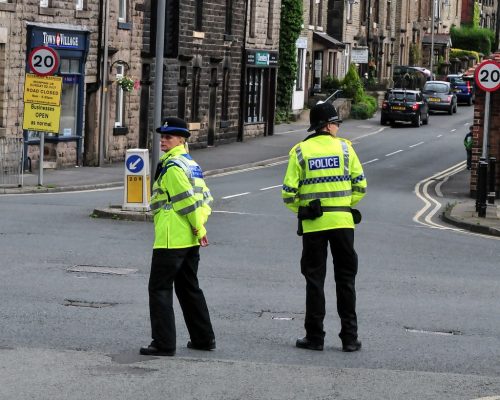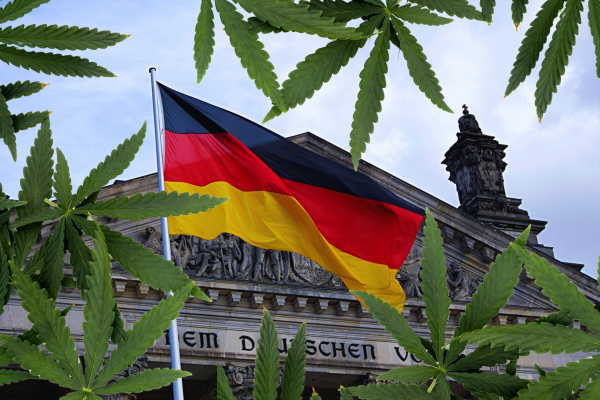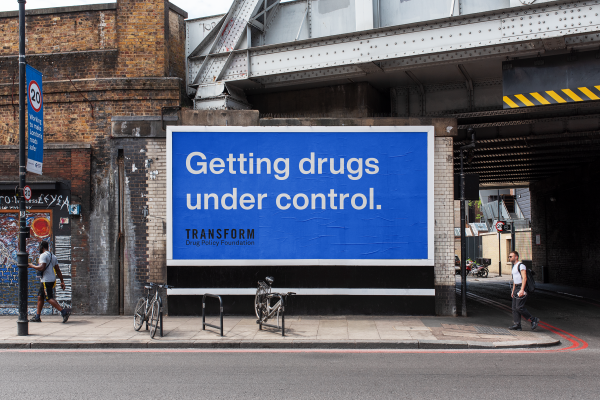31st March 2020
Policing of people who use drugs in the UK has had to change rapidly during the COVID-19 crisis. Even in normal times enforcement of criminalisation of people who use drugs is expensive and counterproductive. In the evolving COVID-19 crisis the key arguments for ending it are more pertinent than ever, particularly for the most vulnerable people who use drugs. What is happening, and what needs to be done?
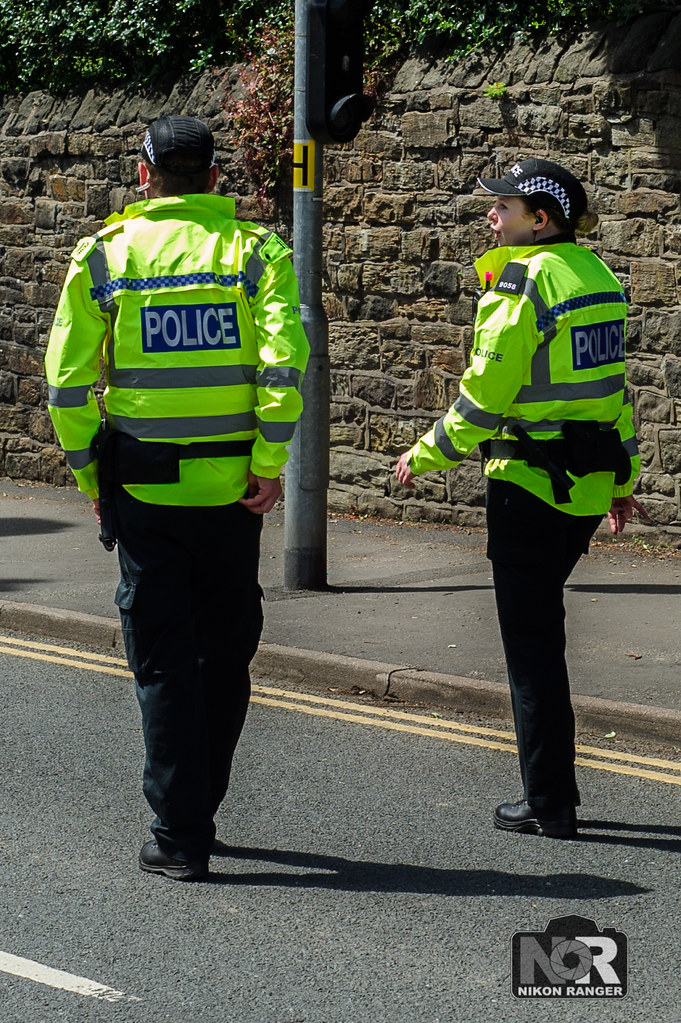
Demands on scarce Police resources
Enforcing criminalisation of people who use drugs is a substantial drain on police resources - with few, if any, tangible positive outcomes. The array of new demands on the police during the unfolding COVID-19 crisis make the need to de-prioritise enforcement of low level drug offences more pressing. The police, quite simply, have far more important priorities right now.
The need for physical distancing to reduce potential virus transmission also means that much standard drug enforcement practice - including stop and search - has become a health risk for both police and public. The ongoing lockdown means there are far fewer people on the streets - and resources have shifted to street patrols, lockdown enforcement, and dealing with an increase in domestic incidents.
Criminalisation has, at best, a marginal deterrent impact, but encourages high risk behaviours
The evidence that enforcement against possession of drugs is an effective deterrent is marginal at best. But we do know that enforcement can increase high risk behaviours particularly for the most at-risk populations, including people who inject drugs and people who are homeless. These are people now in situations of acute vulnerability to both transmission of the virus and its negative health effects.
Additionally, the pandemic is already having impacts on drug markets, including reports of supply shortages and increased prices. These disruptions are likely to grow and further increase risks for people who use drugs, for example by increasing variability in drug purity, the likelihood of adulteration, and contamination of heroin supply with synthetic opioids such as fentanyl and Isotonitazine. Falling purity and rising prices (combined with contracting legal and illegal sources of income for many) can also encourage shifts to more risky drug using behaviours that offer better ‘bangs for bucks’ - such as a shift from smoking to injecting heroin, or use of or mixing with cheaper (high risk) drugs such as street benzos, and synthetic cannabinoids like spice.
Obstacles to effective health interventions
Criminalisation creates obstacles to both provision of and accessing of services. People who use drugs may be fearful of engaging with drug or emergency services for fear of legal sanctions, or that their access to illegal drug markets may be curtailed. Criminalisation makes already hard to reach populations even less accessible to service providers and outreach workers - and can restrict the ability of health professionals to offer what they believe is best practice service provision. Critically, where drug offenders end up in prison - a whole new set of risks and challenges emerges.
The COVID-19 crisis is likely to increase demands on drug services - with people who use drugs potentially going into involuntary withdrawal as drug supply is disrupted, sources of income contract, and drug prices rise. This may increase demand for recovery and rehab services, or more likely, a surge in demand for opioid substitution therapy (such as methadone and buprenorphine) and other medication. There may be additional demands on services for harm reduction supplies including hygiene products, clean drug-using paraphernalia, and naloxone - if concerns about potential for a further spike in overdoses are borne out.
While there is work underway to provide temporary accommodation for example in hotels, there is also an urgent need to secure longer term housing and support for vulnerable individuals who use drugs to self-isolate for their own protection, or to prevent spread of the virus if they are already positive. A key element of resolving this immediate housing challenge will be to establish how people unwilling or unable to stop using drugs are housed in the short term. Moving quickly towards a formalised tolerance model for drug possession and use (potentially modelled ‘wet’ accomodation for some dependent drinkers) will be essential to securing housing in this context, or the wider public health goals will not be achievable.
The crisis creates an urgent requirement for expanded drug service provision, to protect vulnerable populations and to minimise additional burdens on the NHS at this critical time. Criminalisation is the precise opposite of the kind of health and social support that is needed.
What is already happening and what is needed
That police practice is changing, and is taking a more pragmatic approach to people who use drugs should come as no surprise. Front-line police have a unique understanding of the dynamics and impacts of day-to-day enforcement and have been a key driver in the move away from more punitive approaches towards more tolerant health-based approaches. A growing number of police authorities have already implemented ‘diversion schemes’ in recent years, under which people caught in possession of drugs for personal use are ‘diverted’ into relevant health or social programs. This is a model that is fast moving towards adoption as best practice across all forces.
While the term ‘decriminalisation’ is often avoided as it tends to be misinterpreted (and is frequently confused or wrongly conflated with legalisation of production and supply), existing diversion schemes do mean that people who are caught in possession are not criminalised. The UK diversion schemes are, in practice, very similar to the Portuguese ‘decriminalisation’ model - even if UK law itself has not yet been specifically amended. It is, in effect, a form of localised de facto decriminalisation.

It is not practical to extend such diversion schemes within the immediate short term of the COVID-19 crisis (they require establishment of monitoring systems, referral service mechanisms, availability, and training). However, formally reducing drug possession offences to the lowest police priority - effectively a temporary form of de facto decriminalisation of people who use drugs - could happen very rapidly. This could perhaps be done with police provision of contact information for drug treatment and other services to those found in possession of drugs, pending development of a more formal diversion process. As noted - to a significant extent this appears to be happening informally already in many areas. In this context, we need:
- Formal guidance at a national level - from the Home Office and/or police chiefs council - on best practice. People found in possession could, for example, be simply given a verbal warning alongside relevant information or directed to local support services as appropriate.
- For the new guidelines to be made public - providing reassurance to service users and service providers and ending the potential for a postcode lottery patchwork of different enforcement regimes.
- Monitoring and evaluation of changes in enforcement practice alongside key policy outcome indicators.
Politicians may continue to be wary of such a move but should be reassured that ending the criminalisation of people who use drugs not only has growing support from police, but established backing from the global public health community. The WHO has long advocated decriminalisation as a ‘critical enabler’ of the public health response to people who use drugs. This is historically in the context of the HIV and HepC epidemics, but is no less relevant to the threat from COVID-19. Indeed the entire UN system - including the UN Office on Drugs and Crime, UNICEF, WHO and human rights agencies, have adopted a common position advocating for decriminalisation. In the UK, decriminalisation also enjoys strong support from the Royal Society for Public Health, The Faculty of Public Health, the Royal College of Physicians, the BMJ and Lancet, and the Government’s own expert Advisory Council on the Misuse of Drugs - amongst many other voices in the field.
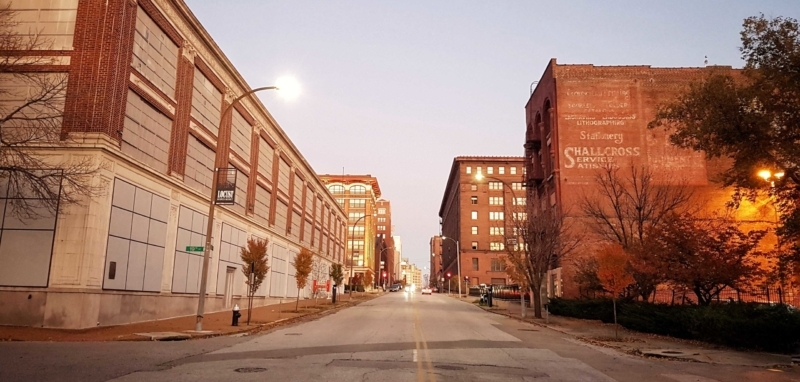
Over 30 countries around the world have already heeded this advice and implemented some form of decriminalisation policy. It is also worth noting that possession of drugs covered by the 2016 Psychoactive Substances Act already does not incur criminal sanctions (except in prison); this is not an alien concept even in UK law and policy thinking.
If the COVID-19 crisis forces us to reevaluate some of entrenched and harmful thinking about how society addresses the challenges of people who use drugs in situations of acute vulnerability, then perhaps something positive can come of the tragedy. We are, in reality, half way towards ending criminalisation of people who use drugs already. There has never been a more critical moment to show leadership and formalise the process to enable vital public health measures to be implemented that will protect the most vulnerable, and in turn, all of us.
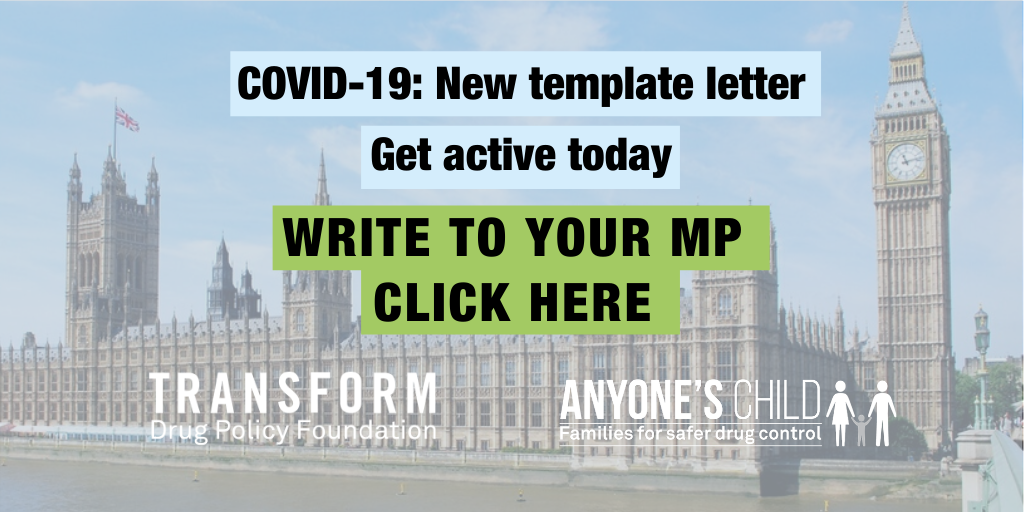
Steve Rolles, Senior Policy Analyst at Transform Drug Policy Foundation
31/03/20

